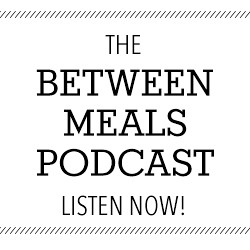Selecting eggs these days can be a bit overwhelming. There’s Free-Range, Organic, Caged, Cage-free, Pasture-Raised. There are brown eggs and white eggs, Omega-3 enriched eggs. Not only are there significant differences in the animal care with these various types of eggs, but in addition, depending on what the hens themselves ate and their access to sunlight, the end result in the eggs we eat, also show drastic nutritional differences, as well. Read on for What You Need to Know About Eggs. Let’s get right to it:
Look at the difference in the color of the yolks from a conventional egg (left), to a pasture-raised egg (right).
The Various Labels – What Do They Mean
- Caged/Conventional: Hens are confined to cages with a 67-square inch (INCH) space each. (To give you perspective, 67 inches is a little smaller than a MacBook laptop). Most of the birds are unable to move or spread their wings, this is where the chickens will spend their entire lives. They never see the light of day and consume a corn and/or soy diet (often genetically modified) and are supplemented with vitamins and minerals. These hens may also be treated with antibiotics. Over 90 percent of eggs in the U.S. come from hens that are kept in cages for their entire egg-laying lives.
- Omega-3 Enriched Eggs: Basically, they’re raised the same as the conventional chickens except that their feed is supplemented with an Omega-3 source like flax seeds. They may have some access to the outside if they are “free-range”, but the likelihood that they actually can go outside, is very slim.
- Organic: Generally raised the same as the conventional birds but are not treated with antibiotics or hormones* and the feed they receive is organic without conventional pesticides or fertilizers. Their access to the outdoors is iffy, at best.
- Cage-Free: These ladies have more room than caged hens, since each is given less than 1 square foot. But despite not being in a cage, still, they’re not entirely “free,” since they’re confined by the thousands to overstuffed barns or hen houses, they never see the outdoors and still consume a corn or soy diet.
- Free-Range: “Allowed access to the outside” is how the USDA defines “free-range.” This just means they “have access”. Allotted less than 2 square feet per hen, these animals have more space than their caged and cage-free peers, and their hen house has a small window for the option to go outside, but they don’t get outdoors as much as you may think. Some seldom get to see the light of day and many eat a corn- or soy-based feed. The term “free-range” is poorly regulated so often just cutting a window or door into a space, or leaving a door open, allows the freedom to use that term, whether or not the birds can actually go through it, if there is pasture or just cement, this is all another story.
- Pasture-Raised: These hens are allowed to graze freely on pasture eating tons of grass, worms, bugs, and anything else they may find in the dirt and grass, they may be given a small amount of feed, as needed. For many farmers (Vital Farms is one to note) each bird is given at least 108 square feet each. On most farms the birds are left to roam all day, and they get called back into the barn before nightfall. It’s important to note that this term is not regulated by the FDA and unfortunately conventional egg farmers could hijack it at any point.1https://www.thepennyhoarder.com/food/cage-free-vs-free-range-vs-pastured-eggs/
From a nutritional standpoint, along with the conditions the hens are raised in, I personally choose and highly recommend pasture-raised eggs. Organic-fed when I can find them. These eggs taste better, look better and they are better for us. Chickens raised on pasture, are the most natural way for them to live their lives. With less stress, lots of fresh air and sunlight, cleaner conditions, less competition just to thrive – it’s obvious why the eggs are so much better.
For a comprehensive list of the highest rated eggs visit the Cornucopia Egg Scorecard. This scorecard took six years to produce and ranks 136 egg producers on 28 different criteria – it is still updated regularly.
Other Things to Consider:
Brown Eggs: These eggs aren’t any healthier than the white ones, they are simply a different breed of chicken.
Hormone-free: As for hormones, no chickens receive them — so saying eggs are “hormone-free” is like “putting a label on a cereal box that says, ‘No toxic waste,’” explains NPR
Vegetarian Fed: Again, this might sound and look like a good thing — but it’s NOT, chickens are actually omnivores. Therefore, “vegetarian” birds are force-fed an unnatural diet, of grains, corn and/or soy which is bad for their health. “Chickens are the furthest thing from vegetarians,” one farmer told The Washington Post. “That advertising is ridiculous. It’s like people going to the zoo and saying they only want to see the vegetarian tiger.” Another writes: “The label ‘vegetarian fed’ is a warning sign that the poultry did not get to spend any time on pasture being happy birds.”2https://www.thepennyhoarder.com/food/cage-free-vs-free-range-vs-pastured-eggs/
All-Natural or Farm Fresh: These are quite literally marketing terms created to grab your attention. They mean nothing. It’s Greenwashing. The term “all-natural” is truly the king of all deceptive marketing ploys used to reel in unaware consumers!
Nutrition Comparison

In 2007 Mother Earth News, a great advocate of better farming practices, ran a very thorough nutritional comparison of pasture-raised and conventionally-raised factory eggs.
In comparison to a conventional egg, pasture-raised eggs contain:
- 2/3 more Vitamin A
- 2 times more omega-3 fatty acids
- 3 times more Vitamin E
- 7 times more beta carotene
In 2008, a follow up study showed that the significant sunlight exposure the hens enjoy translates from the sun to the hens to the eggs in the form of increased levels of Vitamin D – by as much as 4 to 6 times more than conventional eggs!
Other tests have also shown that pasturing yields higher levels of folic acid, and even measurable levels of Vitamin C, which is a first for eggs! (Likely from all the grass they’re eating!)3https://vitalfarms.com/pasture-raised-eggs/
In 2003, Heather Karsten at Pennsylvania State University compared eggs from two groups of Hy-Line variety hens, with one kept in standard crowded factory farm conditions and the other on mixed grass and legume pasture. The eggs had similar levels of fat and cholesterol, but the pastured eggs had three times more omega-3s, three times more vitamin D, 220 percent more vitamin E and 62 percent more vitamin A than eggs from caged hens. Finally, here is a 2010 study from Cambridge comparing vitamins A, E and fatty acid composition of caged eggs vs pasture-raised.
Circle of Life
From an agricultural standpoint, pasture-raised eggs are often superior here, as well. When hens graze, manage their own feed and spread their own manure, farmers have less work and need less equipment. This is the natural circle of life in farming.
The Certified Humane® Seal of Approval
According Hinds of Vital Farms, the “Certified Humane®” seal is worthwhile in the absence of federally-defined standards for pasture-raised hens. “A third-party certification from a recognized and trustworthy organization [is] a literal seal of approval,” he says.
Some farms may claim they are pasture-raising, but without the Certified Humane shield, and the measure of space that’s required to carry that shield, it’s not true pasture-raising.4http://certifiedhumane.org/article-explains-difference-pasture-raised-free-range-eggs/
To Wrap it Up
Hopefully after taking in all of this pertinent information, you will be better equipped to make the best decision for you and your family when purchasing eggs. Pasture-raised (or pastured) eggs are always your best bet. They are far more nutritious and the hens live a much more natural and happy life with free access to the outdoors and a far more natural diet.
For affordable pastured eggs, visit your local farmer markets or farmstands, ask how their birds are raised and what they are fed, put up a wanted ad on Craigslist or check out www.eatwild.com or www.localharvest.com – national directories of local farmers and their practices and products. You could also raise your own pastured chickens easily right in your back yard — see these articles about how to do it here.
You may also be able to find pasture raised eggs at your local grocery stores. We can here. If your grocery store doesn’t yet carry pasture-raised eggs, ask for eggs from pastured hens, and encourage the manager to contact local producers – this is how stores learn what their customers want and often if enough people are asking they will bring them in. I either get my eggs from local farmers that I can trust or most of the time I purchase Vital Farms organic pasture-raised eggs (I can find them locally at Ralphs, Target and Whole Foods).
If you cannot get pastured eggs then Omega-3 enriched eggs would be a decent second choice, at least to increase the nutritional potential of the eggs. If you can’t get either pastured or Omega-3 eggs, then you can try to find eggs that are either free-range, cage-free or organic but to be fully transparent, I personally believe that there is such a small difference nutritionally and in how they are raised, that you might want to just save the money and get conventional eggs until pasture-raised eggs are available in your area. Conventional eggs are still among the healthiest and most nutritious foods you can eat.
References
| 1, 2. | ↑ | https://www.thepennyhoarder.com/food/cage-free-vs-free-range-vs-pastured-eggs/ |
| 3. | ↑ | https://vitalfarms.com/pasture-raised-eggs/ |
| 4. | ↑ | http://certifiedhumane.org/article-explains-difference-pasture-raised-free-range-eggs/ |

















3 Responses
this was SO helpful!! Thank you for this great information and writing it in a way that is digestible-it can be so overwhelming. It’s also crazy and scary how marketing is so gimmicky with their buzzwords/phrases!
Another good brand of pastured eggs is Handsome Brook Farms. They come from upstate New York.
Wow! I knew I avoided other eggs because of hormones but I actually wasn’t aware of the nutritional difference! Great article!